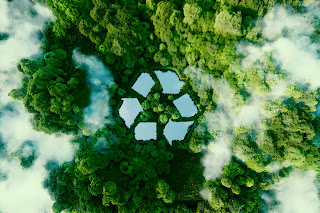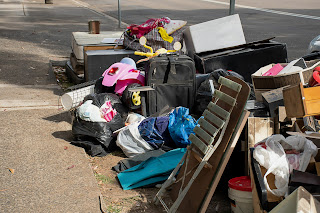Managing Household Waste: Sustainable Solutions in Dubai
Waste management is a critical aspect of urban sustainability, and in a city like Dubai, with its rapid growth and development, finding efficient and eco-friendly solutions for household waste disposal is paramount. The management of household waste in Dubai is a multifaceted challenge, requiring innovative strategies and a commitment to sustainability. In this brief, we explore the current state of household waste disposal in Dubai and highlight some of the sustainable solutions being implemented to address this pressing issue.
The
Challenge of Household Waste in Dubai:
As one of the fastest-growing cities in the world, Dubai
faces significant challenges in managing its household waste by waste disposal services in UAE. The
city's population has been steadily increasing, leading to a corresponding rise
in the amount of waste generated. In 2019 alone, Dubai generated approximately
8.3 million tonnes of waste, with household waste comprising a significant
portion of this total.
One of the primary challenges associated with household
waste in Dubai is the lack of landfill space. Land scarcity is a well-known
issue in the emirate, and finding suitable sites for waste disposal is
increasingly difficult. Additionally, traditional landfilling methods pose
environmental risks, including soil and water contamination, greenhouse gas
emissions, and the depletion of natural resources.
Sustainable
Solutions:
Recognizing the urgent need for sustainable waste
management practices, the government of Dubai has implemented a range of
initiatives aimed at reducing, reusing, and recycling household waste. These
initiatives encompass various aspects of waste management, including
collection, segregation, treatment, and disposal by electronic waste
recycling Dubai.
 |
| Managing Household Waste |
Some of the key sustainable solutions being implemented in Dubai include:
- Integrated
Waste Management Systems: Dubai has invested in
state-of-the-art waste management infrastructure, including recycling
facilities, composting plants, and waste-to-energy plants. These
facilities enable the efficient processing of household waste, diverting
recyclable materials from landfills and converting organic waste into
valuable resources such as compost and renewable energy.
- Household
Recycling Programs: The government of Dubai has
launched extensive recycling programs aimed at encouraging residents to
segregate their waste at source. These programs provide households with
separate bins for recyclable materials such as paper, plastic, glass, and
metal. Collected recyclables are then sent to recycling facilities for
processing, reducing the amount of waste sent to landfills.
- Composting
Initiatives: To address the issue of organic waste, household
waste disposal in Dubai has implemented composting initiatives to
divert food and garden waste from landfills. Composting not only reduces
the volume of waste but also produces nutrient-rich compost that can be
used to enrich soil and support urban agriculture initiatives.
- Waste-to-Energy
Projects: In line with its commitment to
sustainable development, Dubai has invested in waste-to-energy projects to
harness the energy potential of non-recyclable waste. These projects
utilize advanced technologies such as incineration and gasification to
convert waste into electricity, reducing the reliance on fossil fuels and
mitigating greenhouse gas emissions.
- Public
Awareness Campaigns: Education and awareness play a
crucial role in promoting sustainable waste management practices. Dubai
has launched extensive public awareness campaigns to educate residents
about the importance of waste reduction, recycling, and responsible
consumption. These campaigns utilize various channels, including social
media, community events, and educational programs in schools and
universities.
Challenges
and Opportunities:
While Dubai has made significant progress in implementing
sustainable waste management practices, several challenges remain. One of the
main challenges is changing consumer behavior and fostering a culture of
sustainability among residents for secure data destruction
Dubai. Despite the efforts to promote recycling and waste reduction,
many residents still dispose of their waste improperly, leading to
contamination and inefficiencies in the waste management system.
Additionally, the rapid pace of urbanization and population
growth in Dubai presents ongoing challenges for waste management
infrastructure. As the city continues to expand, there is a need for continued
investment in waste
management facilities and technologies to keep pace with the growing
demand for services.
Dubai has positioned itself as a global hub for
sustainability and innovation, attracting investment and expertise from around
the world. By leveraging its resources and partnerships, Dubai can further
enhance its waste management capabilities and serve as a model for sustainable
urban development.
In Short Brief-
In conclusion, managing household waste in Dubai is a
complex but essential task that requires a combination of technological
innovation, public engagement, and policy intervention for IT asset disposal in
Dubai. By implementing sustainable solutions such as integrated waste
management systems, recycling programs, composting initiatives, and
waste-to-energy projects, Dubai is making significant strides towards reducing
its environmental footprint and promoting a circular economy.
However, achieving long-term sustainability will require
continued efforts and collaboration among government agencies, private sector
stakeholders, and the community at large. By working together towards common
goals, Dubai can build a cleaner, greener, and more resilient city for future
generations.

Comments
Post a Comment